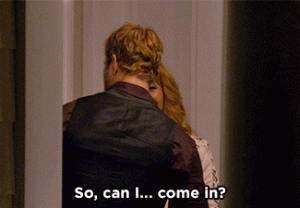Most Common Mistake 1: Redundant words: हम लोग कई बार English बोलते समय कुछ redundant words (अनावश्यक शब्दों) का प्रयोग करते हैं। ज़रूरत से ज़्यादा words का उपयोग करना भी उचित नही है खासकर जब हम पहले से ही अर्थ स्पष्ट कर चुके हों। अधिक शब्दों का उपयोग करने जैसी common mistakes से बचने की कोशिश करनी चाहिए। Example के तौर पर इन sentences को देखिए: a. An android device is more better than a windows phone. Better का मतलब ही बेहतर है तो more की कोई आवश्यकता नही। better (बेहतर) शब्द का उपयोग good के मुक़ाबले comparative (तुलनात्मक) sense में किया जाता है। इसलिये more के इस्तेमाल की कोई आवश्यकता नही।
Correct Sentence: An android device is better than a windows phone.
b. It was a blunder mistake or It was a blunder mistake.
जब Blunder का मतलब भी ग़लती है तो mistake की कोई आवश्यकता नही। blunder या mistake में से कोई भी एक शब्द से काम बन जायेगा।
Correct Sentence: It was a blunder OR It was a mistake.
c. I want you to return my laptop back.
जब return का मतलब भी लौटाना है तो back का इस्तेमाल करने की क्या ज़रूरत?
Correct Sentence: I want you to return my laptop.
d. Mam, will you please repeat that sentence again?
Repeat का अर्थ है दोहराना या दोबारा से बताना तो again का इस्तेमाल करने का क्या लाभ?
Correct Sentence: Mam, will you please repeat that sentence?
Most Common Mistake 2:
When Singular and Plural Forms are alike:
कई words का singular और plural form एक समान होता है। परंतु कई लोग इन्हे sentences में use करते समय यह बात भूल जाते हैं और आम तौर पर इन words को plural बनाने के लिए इनके बाद 's' or 'es' जोड़ देते हैं। बाकी का sentence भले ही पूरा सही हो पर इस भूल के कारण सारी मेहनत धरी की धरी रह जाती है। इस बात का विशेष ध्यान देना चाहिए।
For Example:
Wrong: What criterias are to be kept in mind while making a choice between the two candidates?
Correct:What criteria are to be kept in mind while making a choice between the two candidates?
Explanation: Criteria का plural criterias नही बल्कि criteria ही होता है
Wrong: His hairs were shining after he put oil on them.
Correct: His hair were shining after he put oil on them.
Explanation: hair का plural hairs नही बल्कि hair ही होता है
Wrong: There's plenty of fishes in the sea.
Correct: There's plenty of fish in the sea.
Explanation: Fish का plural Fishes नही बल्कि Fish ही होता है
Most Common Mistake 3:
Can v/s May:
हम ने यह कई बार सुना है। कुछ लोग can और may का उपयोग एक दूसरे के स्थान पर इतनी बेफिक्री से कर बैठते हैं जैसे इससे कोई फरक ही नही पड़ता। यह गलत है। May का प्रयोग तब किया जाता है जब आप अनुमति मांग रहे हैं। यह एक विनम्र अनुरोध के रूप में देखा जाता है। दूसरी ओर can का मतलब है यदि आप कुछ करने में सक्षम हैं या नहीं। जब आप अनुमति मांग रहे हैं। याद रखें की जब भी आप अनुमति माँग रहे हों तो May का प्रोयोग कीजिए।
इसके उदाहरण के तौर पर मैं आपको एक दिलचस्प किस्सा सुनता हूँ। अपनी अँग्रेज़ी की क्लास में late होने पर मैने अंदर आने की अनुमति कुछ इस तरह माँगी:
Can I come in, Sir?
इस पर मेरे English teacher ने मुझे कुछ इस प्रकार जवाब दिया:
You can but you may not.
"Can I come in, Sir?" का सही मतलब बनता है: 'क्या मैं अंदर आने की क्षमता रखता हूँ या नही?' और मेरे के जवाब का सही अर्थ है कि मैं अंदर आने की क्षमता तो रखता हूँ पर अंदर आने की अनुमति वो मुझे नही देंगे।
इसी एक भूल से मैं Can और May में अंतर और can and May का सही प्रयोग समझ गया।

इसी तरह के दिलचस्प तरीकों से English सीखने के लिए Download करें English सिखाने वाला App – Namaste English



